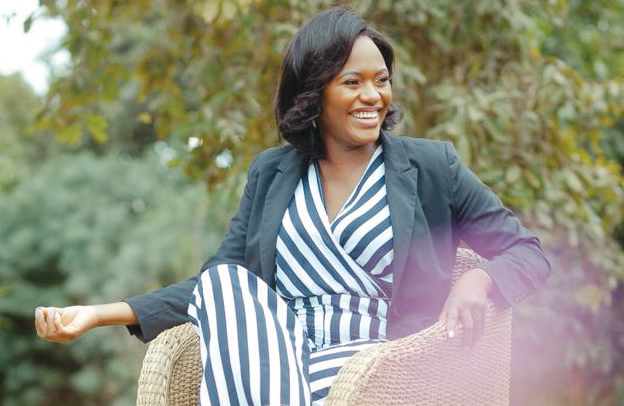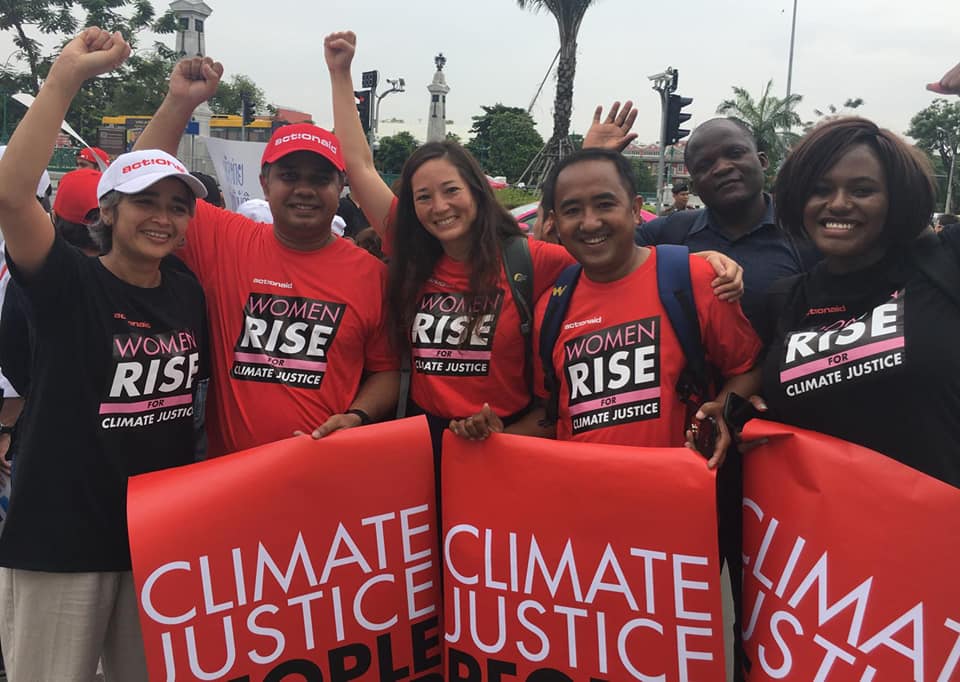Chikondi Chabvuta: Climate Change enthusiast
Chikondi Chabvuta is Care International advocacy adviser for Southern Africa.
But from a young age, she has stood for issues she is passionate about and has since earned several leadership recognitions.

She is a fellow for the African Women in Agricultural Research and Development (Award).
“Through this fellowship, I took a mentorship approach to linking gender to agriculture, became aware and identified as an ecological feminist as inspired by Wangari Maathai from Kenya,” she says.
Later, Chikondi was honoured to be a part of the Young African Leaders Initiative (YALI) in its infancy stages.
This led to further recognition by the Moremi Initiative Leadership Empowerment and Development (Milead) which identifies young African women for leadership development.
She has also attended several fellowships, mentorship assignments and programmes, networking with women farmers.
She says: “Growing up, I realised the economic and social progress other countries were making and wondered how and why Malawi was different. If one sector of society is left out, we are all left behind. Women were the ones being left behind.”
Through her academic and religious circles, Chikondi carried out projects that drew her closer to climate change and women’s issues.
She realised the power of policy on our overall environmental, social and economic systems.
“I continued to be challenged by my professors, professional networks and mentors, to develop a holistic view when approaching climate, development and ecological discourses as they relate to women,” she adds.
Such a background enabled her to fit into Care International’s goals.
As an advocacy adviser, Chikondi collaborates with governments, national, regional and global institutions to improve policies and practices with a specific focus on gender equality and the empowerment of women.

For Southern Africa, they focus on food and nutrition security; climate change, women’s economic justice, health and equity rights.
The scientist observes that gender inequality and climate change are main drivers of poverty within the region.
She says: “After intensive research, evidence shows that we can only attain development if we address gender inequality. If we don’t address climate change, no matter how progressive development plans seem, they will fail to take off because the impacts of gender inequality and climate change will always take us back. As Southern Africa, we have a lot of shared values, cultures, bottlenecks and by learning and sharing together; we can reach our full potential.”
Chikondi’s advocacy took her to the podium to advocate for gender justice for climate justice at the 2021 United Nations climate change conference (COP26).
“We have countries that caused climate change and are still on the development trajectory. On the other side, we have countries that played no role in creating the crisis barely surviving the impacts.
“With climate change, women must encounter issues caused by unequal power relations. In Malawi, we would call this ‘adding logs to fire.’ As far removed as greenhouse gas emissions may seem, it is acutely related to all these problems women are experiencing. Those living in poverty are undoubtedly impacted the most,” she notes.
Chikondi says the women farmers who work hard, yet climate impacts do not make their jobs any easy as they erode all their hard work away.
The advocate observes that these women have dreams, they want to prosper like everyone else, but climate change and its impacts are happening at an alarming rate and it’s a struggle!
And her advocacy dates back to a college research assignment with the Centre for Community Development (CCODE).
She worked with women farmers in Mtandire Township, revealing their challenges in the process.
Chikondi has also worked the Farmers’ Union of Malawi (FUM) as a gender specialist supporting farmer cooperatives and associations to be gender inclusive.
“All this experience led me to work with Actionaid where my passion was further sharpened. I collaborated with powerful and passionate colleagues within the organisation who all believed in prioritising women’s rights in climate change, humanitarian and resilience work,” she beams.
She adds that Care is reputed for leading on gender transformation programmes and she works with ‘incredible’ teams across the globe and several groups in the Southern Africa region on eliminating poverty with gender-transformative approaches.
In addition, Chikondi says Care country offices deliver programmes on climate change and reducing food and nutrition insecurity.
“We work on attaining economic justice for women. Care is behind the Village Savings and Loans Associations model which has been globally recognised in helping attain financial independence,” she says.
She further observes that there are discriminatory laws and customs or socially ingrained beliefs that constrain the roles and opportunities of women and men to take action on climate change.
With 80 percent of farming done by women farmers and as first responders when climate emergencies occur, Chikondi says there was need to understand gender impacts on people’s vulnerability.
“Women need opportunities to lead in climate action whether on climate adaptation or working on loss and damage, representation matters. We cannot be developing global, regional, national or even district policies when half the population is not represented.
“We need to be deliberate, ask ourselves, how many people are impacted by what we are crafting and are present/have contributed to the solutions being proposed. They have the answers, in their contexts, in their daily lives—they need to make the decisions affecting them as women,” she adds.
Chikondi describes herself as an evolving woman who enjoys reading, hiking, spending time with her family and tending to her small garden and plants.
She is a Christian, married with three children, enjoys journaling and having quiet time meditating.
“I love long walks and playing with pets. I am an enthusiast who laughs a lot with my friends and family. We are a family that loves being together. Any opportunity to be together, we spend together! I am an eco-feminist, which means I believe in an equal world that is in an ecological balance and things, living and non-living are treated equally and with proper care and compassion,” she says.
She emphasises that in terms of climate change, it is a grim picture and the situation will not improve as we are impacted by actions that happened a hundred years ago.
Her advice to women and girls is; they are powerful and should continue working in the informal and formal structures to celebrate the progress we are making and continue fighting for an equal world.
And if she was to change the world, she would focus on reducing inequalities one community at a time with women leading and taking part in decisions that affect them.
“Finally, if I could, I would halt the rate the climate is changing, close up greenhouse emitting plants and have more cleaner energy accessible to everyone,” says Chikondi.





